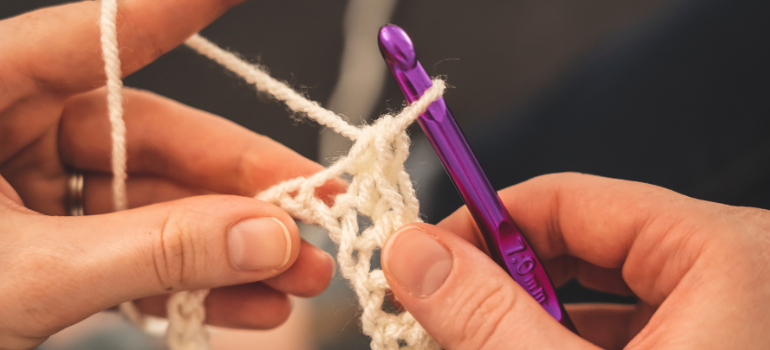Relapsing is always a possibility when you are recovering from Substance Use Disorder. Remember that even if it happens, it doesn’t cancel all your progress. It simply means you may have to get together with your therapist to figure out new strategies to cope with stressors. However, preventing relapse is part of being a responsible patient. Outside stressors can play a huge factor when it comes to relapse. Going through a divorce is, most of the time, a stressor. Every divorce proceeding is different, but this period of life is likely to come with feelings of grief, anger, uncertainty about the future, concern for your children or stepchildren, and other negative emotions that may tempt you to reach for the substance you formerly abused. Here are some strategies for preventing relapse during and after divorce.

Some of the Challenges of Preventing Relapse During and After Divorce
There are several reasons why even the most amicable and peaceful divorce can be triggering for someone recovering from addiction. These include, but are not limited to:
Grief over the loss of an important person in your life
Sure, your ex might still be part of your life, especially if you have children or work together. However, your relationship with them is not going to be the same as it was before. In some cases, our spouses are not just romantic partners. They may also be best friends, business associates, confidantes, and important pillars of our support networks. Suddenly, losing this person can be a lot like having to process their death. This means divorce often comes with a lot of feelings of grief.
Even if you and your ex are ending things in less than ideal terms, you may be grieving over all the things you did not choose in the past for choosing to stay with your spouse. This can take a toll on you emotionally and tempt you to come back to old crutches such as addictive substances.
Concern over the wellbeing of your children and stepchildren
If children are involved in a divorce, it is natural to be concerned about their well-being. You may see them suffering in real time and feel powerless over making things better for them. This can be distressing for any good parent or step-parent and can often come with feelings of guilt. However, remember that the best parent you can be during this time is a sober parent.
Preventing relapse during and after a divorce should be a priority. If you feel like things are getting out of your hands, you can always look into family therapy so both you and your children have the help you need.
Changes in living situation and/or routine
You may be moving out of the house or apartment you considered your home for years. Even if you stay where you used to live, you may have to adapt to shared custody regimes and changes in routine. Now, you alone may be solely responsible for the household chores and get used to being alone for far more time than what you are used to. Change can be distressing for people in recovery from Substance Use Disorder, so it is important to stay vigilant during times of change.
Feelings of guilt or anger at being abandoned
There are always complicated feelings in a divorce. If you initiated the divorce, you may feel guilty about giving up on your ex and worry about their well-being without you. If your spouse initiates the divorce, you may feel angry and abandoned. This can open up old childhood wounds. This is why it is important to have strategies to avoid relapse.
A lot of free time suddenly available
You may find yourself with a lot of time on your hands, and this can be dangerous for someone with a history of addiction. The temptation to try your old substance of choice just one time is there. It is not like you will come back home and have to explain yourself to someone. This may not be as emotionally loaded as other circumstances surrounding the divorce. Still, it is important to have things to do with all this time on your hands, even if you are not particularly triggered.
The culture around breakups and divorce
Your friends, especially if they do not know about your history, may be eager to take you to bars or clubs. They may insist you get out there and meet new people in environments where substance use is normalized. If you have a history of substance use, the last thing you want is to be in a place where everybody is drinking alcohol or smoking weed. This can make preventing relapse during and after a divorce virtually impossible. Make it a point to meet new people and see your friends socially, but try to do so in sober environments.
Strategies for Preventing Relapse During and After Divorce
Even though there are many unpredictable feelings and events in a divorce, there are some things that are still under your control. If you don’t want to relapse during this time, there are a lot of things you can do to prevent that. The focus should be both on yourself and your nourishing connections.

#1 – Think Ahead: Prepare a Contingency Plan (or Three)
If the temptation to abuse a substance does happen, let it reach you with a plan in hand. What are you going to do if you feel sad, depressed, scared, and you want to reach for the bottle, joint, or pills? What about lacing up your trainers and having a walk or run? Are you reaching for your brush or journal? Have you considered calling someone in your support network? Are you going to turn on a comforting movie or TV series?
Come up with a few contingency plans for when you’re feeling down. It’s better to have multiple plans: one for when you’re only slightly tempted to pick up the substance, one when you feel a moderate amount of temptation, and one for when, if no one intervenes, you’re most likely to relapse. In the first-case scenario, maybe playing a comforting movie will do the trick. In a worst-case scenario, be ready to seek help at a rehab center in WV.

#2 – Identify the People in Your Support Network
Human connection is crucial to prevent relapse during and after a divorce. Divorce is a lot about the loss of someone important in your support network. Perhaps even multiple people, if you got along with your in-laws and those relationships were severed as well.
Therefore, you should make it a priority to work on the rest of your support network. First, identify people in your support network. Only in very rare cases will your ex be part of said support network, even when there are children involved and you cannot cut off contact.
Some people who may qualify for your support network include close friends, siblings, parents, AA or NA sponsors and peers, therapists, and neighbors. Ideally, they should know about your Substance Use Disorder history and your divorce. If they do not know yet, make it a point to tell them. Remember that these relationships generally go both ways. Make sure to be there for the people who are there for you.
At Harmony Ridge, we have outpatient treatment options that can help you build community among people who are going through similar challenges. The bonds you form during group therapy may get you through tough circumstances such as a divorce. These kinds of communities can be key when preventing relapse during and after divorce.

#3 – Be Disciplined About Having One or Two Healthy Hobbies
Any activity that is not disruptive to your routine and does not involve substance use can be considered a healthy hobby. Ideally, though you should aspire to take up one or two hobbies that do not involve screens. Some examples of healthy hobbies include knitting, crocheting, yoga, hiking, running, participating in team sports, painting, dancing, singing, theater, crafting, reading, journaling, calligraphy, playing board games, learning languages, music, taking classes at a community college, cooking, and baking.
The idea is for you to turn to these when you feel triggered or upset. These hobbies are grounding and can help you find your center and disconnect from your stressful divorce, even if only momentarily. Act early, pick one, sign up for a class, or get the supplies you need and try it out. Taking a class in your chosen activity can be a way for you to get distracted and meet new people as well.

#4 – Identify Triggering Dates and Events and Act Accordingly
Preventing relapse during and after a divorce is a lot about having contingency plans in place. If you know the day you sign your papers or have the initial meeting with the lawyers will mess you up, act accordingly. Make space in your schedule to feel your feelings and have a plan in place, such as a date with your best friend or someone else in your support network.
For unforeseen circumstances or events, have a contingency plan in place. If you have to get together with your ex and talk, schedule it when there will be people in your support network available afterward. If you can, have a standing date or phone call after said conversation. This will diminish the chances that you relapse after a stressful conversation or divorce-related event.

#5 – Prioritize Sleep Hygiene
What does sleep hygene have to do with relapsing into addiction? Well, more than you would think. Sleep plays a crucial role in regulating neurotransmitter systems in the brain, including those involved in reward, motivation, and stress responses.
Chronic sleep deprivation or poor sleep quality can disrupt these systems, leading to imbalances in neurotransmitters such as dopamine, serotonin, and cortisol. These imbalances can increase cravings for drugs or alcohol as the brain seeks to restore balance and alleviate discomfort. Poor sleep quality or not getting enough sleep also means impaired decision-making and self-control. You will suffer from increased stress and emotional dysregulation, as well as weakened resilience and coping skills.
Going through a divorce can be chaotic and unpredictable. However, it is under your control to have a full night’s sleep. Make sure to have a consistent bedtime and wake-up time. Do not use screens a couple of hours before bed. Condition your room to your liking, use earplugs and a face mask if necessary.
If your anxiety or distress symptoms are interfering with your sleep, make it a point to see your doctor. Psychiatrists at Harmony Ridge can help you develop strategies for a good quality of sleep. You will also learn relaxing techniques such as yoga and meditation that you can apply right before bed.

#6 – Beware of Overworking Yourself
You may be tempted to sign up for a lot of classes, go to the gym every single day, and pick up extra shifts at work to avoid thinking about the divorce. However, while this can be a short-term solution to avoid relapse, it can end up being counterproductive. You may end up relapsing after a couple of months of this because of the burnout and exhaustion.
Make time to process all the complicated feelings that may arise during this time in a safe environment. Make sure you have plenty of time to rest as well. Grief is hard work, and a lot of people are grieving the loss of a partner during divorce. Add to that maintaining sobriety, and you have a full-time emotional job to complete. Do not make it harder for yourself by signing up for more obligations than those that are absolutely necessary.
Rely on Recovery Centers to Help You Get Back on Track
When preventing relapse during and after divorce, it is important to have strategies in place. There should be strategies both for extreme emotional dysregulation and mere boredom. Make sure you have a strong support network in place, pick up a healthy hobby or two, do not overwork yourself, and prioritize getting good sleep. Thinking ahead can be the difference between staying sober and having a relapse during this time. At Harmony Ridge, different recovery programs help you get on your feet during this challenging time.



